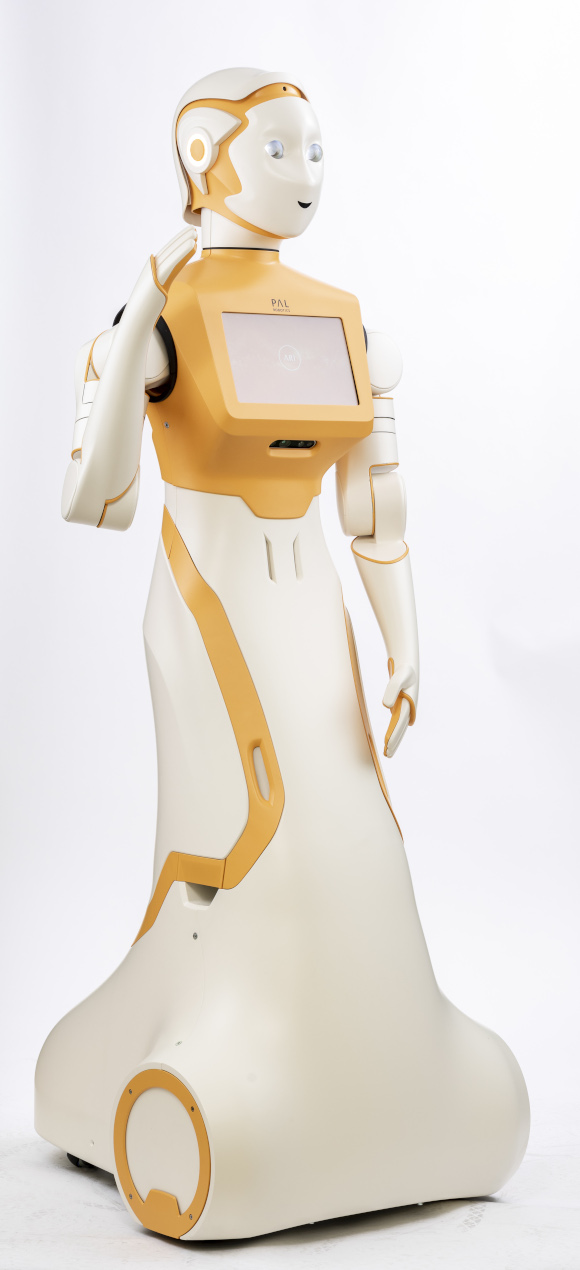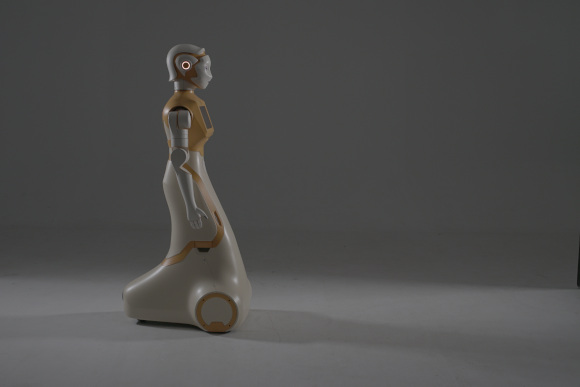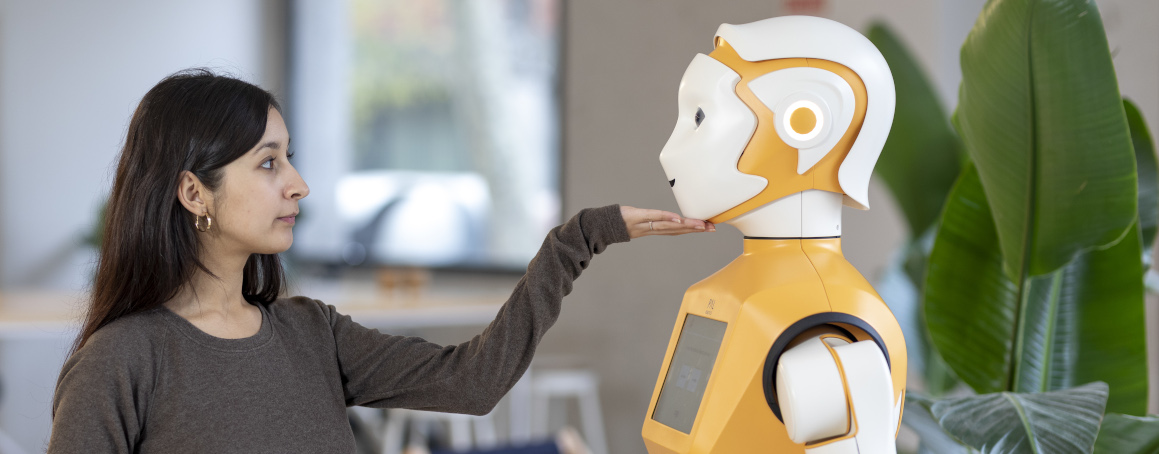PAL Robotics’ Social robot ARI in user pilots at Clinica Humana
PAL Robotics’ social robot ARI is taking part in the SHAPES project. Due to the ongoing COVID-19 pandemic, where social isolation and loneliness greatly impact older persons, the large-scale deployment of digital solutions supporting and extending healthy and independent living for older persons, that the SHAPES project aims to enable, is becoming even more necessary. One of the means to tackle this is through the use of social companion robots, which can assist older persons in a humanised social manner.
PAL Robotics’ ARI is a high-performance robotic platform designed for a wide range of multimodal expressive gestures and behaviour, focused on social interaction.
The robot consists of a mobile base, torso with an integrated Linux-based tablet, arms and a head with expressive gaze. As a social robot, ARI can serve as a therapeutic assistant at hospitals, care-homes or end-user homes to foster social communication, reduce loneliness, stress, and increase overall user enjoyment and activity.
ARI is participating in a pilot that will take place at Clínica Humana (Mallorca, Spain). They are a private clinic with more than 7 years of expertise in chronic patient management and provide hospital care to seniors residences, communities and homebound patients with a strong technological component in telemedicine.
End-users are people between 70-80 years old, living in urban environments in their houses or in sheltered housing. The pilot will be done with 4-5 participants for 4 weeks each.
During these pilots, based on user requirements, the robot will be programmed to carry out some of the following actions:
- Detect and monitor temperature;
- Establish a video call ;
- Send alerts to caregivers by call, SMS or other means about incidents;
- Receive messages from caregivers and external people;
- Detect and monitor falls;
- Remind users of different events;
- Prompt follow-ups;
- Entertainment games and physical exercise games;
- Show pre-selected images on the touch-screen;
- Set up shopping lists and remind users to fill in the shopping list.
A second pilot will use ARI to play cognitive games with older persons, where the robot will explain and instruct end-users on the games to promote engagement.
The main consideration in prototype development is the design of a multimodal user interface. The robot offers multimodal behaviour by enabling interaction with the tablet, but also combining it with speech interaction, change of LED effects, expressive gestures with the arms and head, and animated eyes. For some cases, the end-user will approach the robot, while for others, the robot will actively seek the user to indicate reminders.
Modifications to the robot include the inclusion of a thermal camera, so that the robot may measure the older person’s temperature and alert caregivers if the temperature is abnormal.
Digital solutions from SHAPES partners will be integrated onto the robot to enable speech recognition, fall detection and video calls, and user authentication will be using multimodal biometrics. For that, ARI offers the Rest API so that digital solutions may call its functions externally, enabling the use of other programming languages (e.g., Java, Android). Moreover, digital solutions may be integrated onto the robot as ROS (Robotics Operating System) nodes.
For more information please follow our link:




